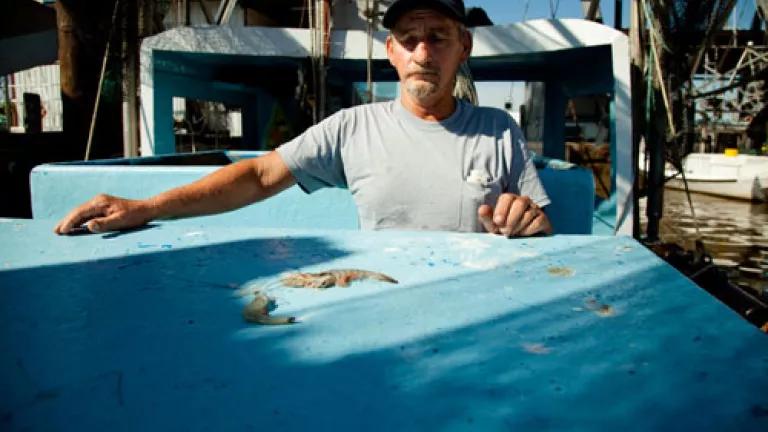
I am marking the one-year anniversary of the Deepwater Horizon blowout by spending the week in Louisiana. Together with several other members of the National Commission on the Deepwater Horizon Oil Spill and Offshore Drilling, I am here to help remind the nation that the consequences of the BP oil disaster persist to this day.
Yet even as Gulf communities struggle to rebuild, Congress has failed to pass a single law to make drilling safer than it was a year ago, and the oil industry remains unbowed and relentless in its drive to gain more access to the offshore environment.
Indeed, when the House returns from recess, they will vote on three bills that would accelerate the pace of drilling, sidestep environmental safeguards, and mandate drilling in new areas along the Atlantic and Pacific Coasts and in the Arctic Ocean.
Measures like these would make our coastal communities more vulnerable to disastrous oil spills. Residents of the Gulf Coast can tell you just how devastating such spills can be.
I have spoken with many Gulf residents this week who still feel the aftermath of the BP disaster.
Fishermen told me about their struggles to keep food on the table and boats from being foreclosed in the face of last year’s staggering losses. The Gulf of Mexico saw a $62 million decline in dockside sales after the spill.
Gulf Fisherman Acy Cooper
People working in the tourist industry were also hard hit. The Gulf Coast Claims Facility has paid $1.5 billion in lost earnings from the hotel, food, rental properties, and tourism industries to date. Some hotels report strong spring-break business this year, but many fishing guides and boat rental operators say revenues are down because tourists seem hesitant to go out on the water. (You can hear residents tell their own stories in a documentary produced by NRDC and airing on Planet Green called “Stories from the Gulf.”)
Meanwhile, residents describe a changed environment. They talk about seeing oil matted in marsh grasses and noticing more dead dolphins and sea turtles and wondering what role the oil played in these deaths.
The truth is that we won’t have a clear understanding of what the oil has done to the Gulf ecosystem for years to come. It simply takes a long time to collect the data and analyze changes in fish populations and marsh environments.
Living in the face of such uncertainty, struggling with economic hardship, losing family traditions— all of these forces have taken a toll on residents’ psychological health. Experts say that traumatic symptoms are peaking now, months after the blowout occurred. NPP’s Morning Edition reported that calls to a mental health hotline in Alabama tripled in March.
And yet, last week in Congress, Representative Doc Hastings (R-WA), the chairman of the Natural Resources Committee, declared “Drilling is safe.” It was as if we learned nothing from the BP disaster and the ongoing suffering it caused.
We cannot say drilling is safe when Congress has not taken necessary steps to strengthen protections for rig workers and the marine environment.
We cannot say drilling is safe when the industry has yet to prove it has any better means of preventing or cleaning up a spill than it did a year ago. Oil companies are still relying on the same blowout preventers, boom, and dispersants we had last year that either failed or left behind serious unanswered questions. Even the new highly touted industry containment system leaves us at risk.
And we cannot say drilling safe is when the government lacks the resources it needs to police an industry that for years has policed itself, to perilous ends. The Obama administration has started acting on the lessons of the spill, but Michael Bromwich, the head of the newly formed Bureau of Ocean Energy Management, Regulation and Enforcement told that New York Times that his agency “still lacks the resources, personnel, training, technology, enforcement tools, regulations and legislation it needs to do its job properly.”
Bromwich also said that U.S. offshore drilling accident rates are much higher than Australia, Canada, Norway, and the United Kingdom because those nations put stronger rules in place after major accidents.
We know how to reduce the risk of oil spills. National Commission on the Deepwater Horizon Oil Spill and Offshore Drilling laid out a list of recommendations for how the industry, the government, and Congress can prevent another disastrous spill from occurring.
We just need the political will to put those recommendations in place. Only then can we declare that drilling is safe.
